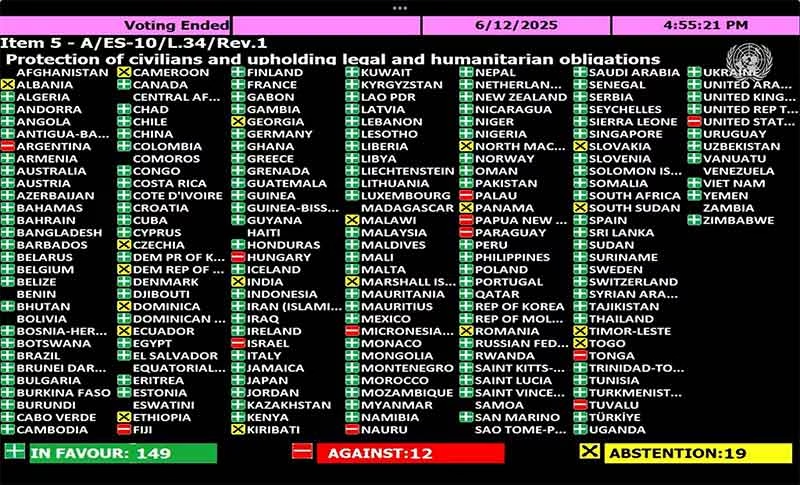
India’s response to the Gaza crisis at the United Nations has raised uncomfortable but necessary questions about the ethical foundations of its foreign policy. Once a leading voice for the Palestinian cause and the rights of colonized peoples, India today finds itself veering into a grey zone of strategic ambiguity, marked by silence, abstention, and caution. Its vote — or abstention — on key resolutions concerning Israel’s military operations in Gaza is more than a diplomatic maneuver; it is a signal of shifting values.
In October 2023, the UN General Assembly overwhelmingly passed a resolution calling for an immediate humanitarian ceasefire in Gaza, a region under siege after the Hamas attacks on Israel. India abstained. In subsequent votes, including those addressing humanitarian aid and civilian protection, India either withheld support or offered vague statements that fell short of clear condemnation of the disproportionate use of force by Israel.
This is not the India that once stood shoulder to shoulder with anti-colonial movements or consistently backed Palestinian statehood as a matter of moral and historical justice. India’s shift from principled solidarity to calculated neutrality — or worse, silent complicity — betrays its own legacy and the expectations of the Global South it often claims to represent.
To be clear: the October 7 attacks by Hamas were horrifying and must be unequivocally condemned. But what has followed — over 35,000 Palestinians killed, including thousands of children, hospitals bombed, entire neighborhoods leveled — is a scale of retribution that cannot be justified under international law or basic human conscience. When a state enacts collective punishment on a besieged civilian population, the world must speak. India did not.
India’s position seems to be driven less by moral clarity and more by geopolitical calculations. Its growing defense and intelligence ties with Israel, strategic alignment with the United States, and regional concerns about Islamist militancy may help explain its stance. But foreign policy based solely on transactional interests is shortsighted. It weakens India’s claim to moral authority in global affairs and undermines its credibility as a bridge-builder and peace advocate.
Moreover, India’s silence resonates domestically. Among its citizens — particularly civil society groups, religious minorities, academics, and youth — there is palpable disillusionment. Many Indians see the Palestinian struggle through the lens of justice, resistance, and dignity. The government’s failure to reflect this sentiment risks deepening internal divides and alienating voices that have long championed a pluralist and rights-based India.
India must ask itself: Can it remain silent when hospitals are bombed, aid convoys attacked, and famine used as a weapon of war? Can it claim the mantle of Vishwaguru — a moral guide to the world — while turning away from mass suffering?
As a rising power, India need not choose between Israel and Palestine. But it must choose between complicity and conscience. Its votes at the UN are more than symbolic; they tell the world what kind of nation India seeks to be.
The time has come for India to reclaim its voice — not as a passive observer, but as an active moral force. The world — and Gaza — deserves nothing less.
Subscribe to Our Newsletter
Get the latest CounterCurrents updates delivered straight to your inbox.
Ranjan Solomon is a political commentator










































